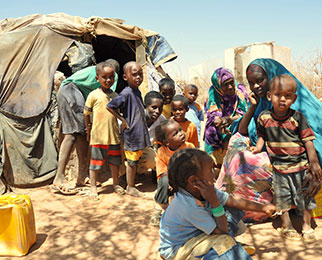Loading



Refugees who are newly arrived in a country face a double crisis. They must manage the trauma that caused them to leave their country, while trying to understand the culture of a new country.
If a refugee is not successful in achieving asylum, on the other hand, they face another set of challenges. They may have feelings of shame, they may have to start their lives over, and they may be in real danger.
Properly trained counselors can help refugees overcome the difficulties of both situations. Cross-Cultural Counseling and Motivational Interviewing are essential in helping individuals adapt to new cultures with a good quality of life. These approaches also help individuals prepare for a return to their home country.
Ulf Lidman, a trained therapist, has been working with marginalized groups for more than 35 years. He has worked extensively in refugees in camps in the Middle East and Africa, and has spent the last ten years working with refugees in Scandinavia, particularly unaccompanied minors.
Today Ulf’s work involves supervising and training staff in how to deal with crisis and trauma in newly arrived refugees, as well as helping individuals prepare to return to their home country. Ulf is convinced that it is the role of the counselor to adapt their approach to the culture of the refugee, rather than the other way around, when they first arrive in a new country.
“When a person is in an acute crisis situation, they do not have the cognitive ability to adapt to another culture,” Ulf says. “We as counselors and therapists need to be aware of this. We need to be able to meet the person on their terms, understanding how they interpret their crisis in the context of their culture and values. A person cannot decide how to relate to a new culture until they are stable enough to do so.”
“Counselors might make an assumption that people process crisis and trauma through conventional counseling,” Ulf says. “However, this doesn’t necessarily work for someone from another culture where values are based on the community rather than the individual. Western diagnosis and methods are irrelevant unless they enhance the person’s quality of life.”
Since people interpret and process crises according to their own culture, understanding these interpretations is the key to success.
Through Cross-Cultural Counseling, counselors and therapists can act as a bridge between what the receiving country can offer and how the refugee interprets their condition or symptoms. When the counselor is proactive in adapting to the person’s culture, this can help the person process their crisis, overcome culture shock and focus on adjusting to their new life.
Today many refugees must face the challenges that come with being deported to their home country. When their asylum is rejected, people may experience a new crisis. They are now facing obstacles and uncertainties, and often have feelings of failure, disappointment and shame.
Two approaches are particularly useful in helping people handle this situation. Anticipatory Crisis Processing helps people facing deportation to deal with their stress. Motivational Interviewing, on the other hand, involves the counselor and client working together to find and achieve new goals.
“When an
individual has to move on after a failed asylum process, they often
deal with issues of shame and failure,” Ulf says. “There is a big
risk that the person will fall into apathy or depression. With
Motivational Interviewing you can help these people realize that life
is not over, and that there are still things they can do.”
Refugees returning from another country can also see their intercultural experience as an advantage, Ulf says.
“I want to empower people who have been migrating between countries to interpret their own experiences,” he says. “When processing those experiences, they need to identify what skills and competencies they have gained and how to implement them in their new future. Hopefully a future that is about living and not just surviving.”
Ulf can design a course for your organization based on its specific needs. Read more about these courses on the links below.
